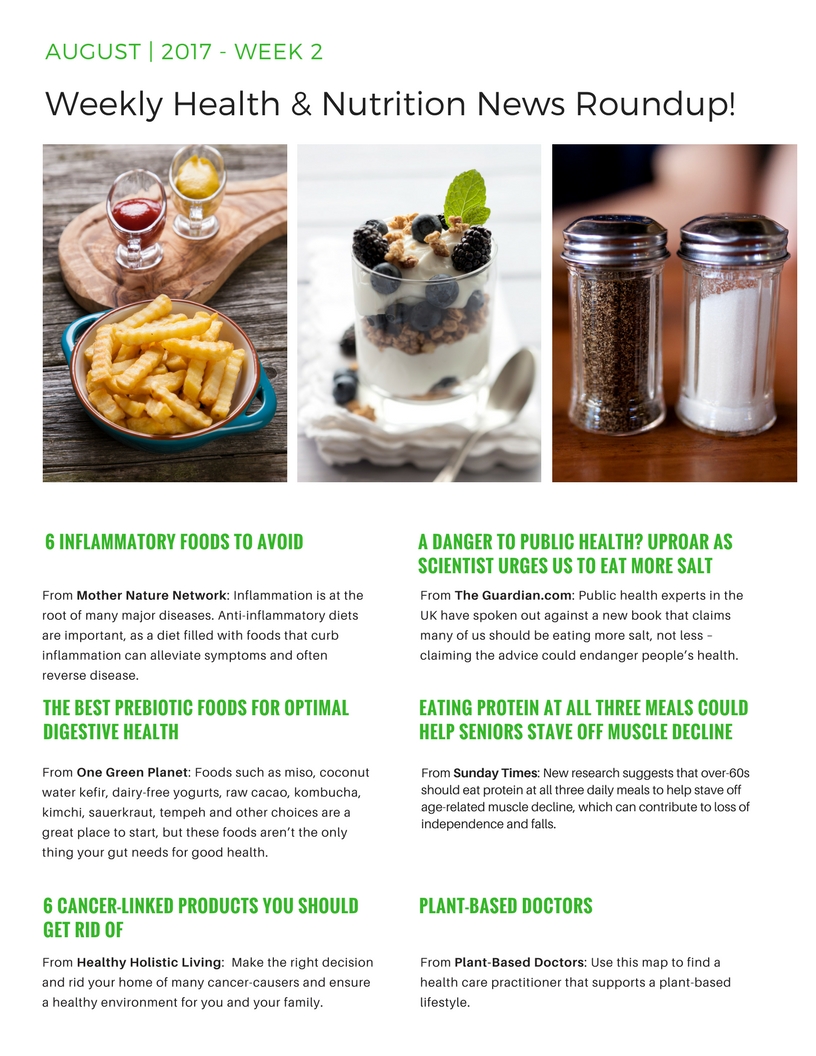
Nutrient rich foods are those food products that have high amounts of beneficial nutrients. These nutrients include vitamins, minerals and healthy fats. Examples of these are nuts, whole grains, seeds, and seafood.
Low resource groups are typically less aware of and less likely to eat nutrient-dense food. There have been interventions to increase access to and usage of nutrient dense food. The report offers five broad strategies for increasing access to and the use of nutrient dense foods.
The first step in any strategy involves identifying the primary obstacles that prevent people from accessing and using nutrient-dense foods. It is important to determine the potential to address these constraints. There are many obstacles that businesses face in Tanzania to produce or provide nutrient-dense foods.
Lack of incentives for businesses is one of the main reasons. Businesses tend to produce high-quality products and target wealthy communities. They don't have the incentive to cater for the nutritional needs of low-income consumers. This is especially true of fresh food, which is difficult to transport over long distances.

Another limitation is the absence of mechanisms to differentiate nutrient-dense foods from healthier alternatives. Small businesses have limited access to regulatory agencies. A third constraint is the absence of a business environment that provides a mechanism for earning commercial returns from nutrient dense foods.
No matter what the constraints may be, it is vital that both public and private sectors collaborate to increase the availability of nutrient-dense food. Some of these limitations can be overcome using a combination of interventions, as demonstrated in Tanzania. One program might support the creation of enterprise clusters, conduct behavior change communications, or fortify nutrient rich foods.
Agricultural policy can be used to promote market-based distribution of nutrient dense foods. Ethiopia's government is willing and able to work with the private sectors. Yet, the government's emphasis on promoting commercialisation has neglected nutrient dense crops. There is also a need for more targeted policies to encourage markets for nutrient rich foods.
While there are numerous ways to promote market-based distribution of nutrient-dense foods, the most critical challenge will be the mobilization of sufficient funding for non-profit distribution. Non-profit distribution is a reliable source of demand for businesses. However, the supply of nutrient dense foods to the poor will continue to be a problem.
It is important to provide nutrition-dense foods in a sustainable and community-based way. These interventions should include locally-produced nutrient-dense food as a key component to a comprehensive nutrition program.

It is a long-term investment to provide nutrient dense foods. This is particularly true for the fortification of nutrient dense foods. Fortification will require substantial resources over the long term. The report, despite its limitations, identifies strategies that can improve demand for nutrient dense foods.
The key takeaway from the report is that the government should identify and address the barriers that prevent the poor from having access to and using nutrient-dense foods. It is vital to identify the major constraints and to work with the private and non profit sectors in order find solutions.
FAQ
Exercise: Is it good or bad for immunity?
Exercise is good to your immune system. Your body makes white blood cells that fight infections when you exercise. You also eliminate toxins. Exercise helps prevent diseases like cancer and heart disease. Exercise can help reduce stress.
However, exercising too much can weaken your immune system. If you work out too hard, your muscles become sore. This can lead to inflammation and swelling. Your body then needs to make more antibodies in order to fight infection. Problem is, extra antibodies can trigger allergies and other autoimmune conditions.
So, don't overdo it!
What is the best way to eat?
There are many factors that influence the best diet, including your gender, age, weight, health condition, lifestyle, and personal preferences. Consider how much energy and low-calorie foods you consume, as well as whether or not you are a fan of fruits and vegetables.
Intermittent fasting is a good option if you're trying to lose weight. Intermittent fasting is a way to eat only certain meals during the day instead of three large meals. This may be a better option than traditional diets with daily calorie counts.
Intermittent fasting has been shown to improve insulin sensitivity, reduce inflammation and lower the risk of developing diabetes. Research suggests that intermittent fasting can promote fat loss and improve overall body composition.
What should I eat?
Get lots of fruits & vegetables. These vegetables and fruits are rich in vitamins and minerals that will keep your immune system strong. Vegetables and fruits are high in fiber which helps to digest and fill you up. You should eat at least five servings per day of fruits and vegetables.
Water is essential for your body. Water flushes toxins out of the body and helps to feel full between meals. Drink about eight glasses each day.
Consume whole grains and not refined. Whole grains contain all of their nutrients, including B vitamins and iron. Refined grains have been stripped of some of their nutrition.
Avoid sugary drinks. Sugary drinks have empty calories and are a major contributor to obesity. Instead, choose water, milk, and unsweetened tea.
Avoid fast food. Fast food lacks nutritional value. Although it may taste delicious, fast food won't provide you with the energy you need for your daily activities. Avoid soups, sandwiches and other unhealthy options.
Limit your alcohol consumption. Avoid alcohol as it can cause empty calories and poor nutrition. Limit yourself to no more than two alcoholic beverages a week.
Red meat consumption should be reduced. Red meats are high-in saturated fats and cholesterol. Opt for lean cuts of beef, pork, lamb, chicken, fish, and turkey instead.
Which are the top 10 foods you should eat?
The following are the 10 best foods to consume:
-
Avocados
-
Berries
-
Broccoli
-
Cauliflower
-
Eggs
-
Fish
-
Grains
-
Nuts
-
Oats
-
Salmon
What weight should I be based on my age and height. BMI calculator and chart
A body mass index calculator (BMI) is the best way to find out how much weight you should lose. Healthy BMI ranges between 18.5 to 24.9. You should lose about 10 pounds each month if you are trying to lose weight. Simply enter your weight and height into the BMI calculator.
Check out this BMI chart to determine if you are overweight or obese.
What are the 7 keys to a healthy, happy life?
-
Take care of your health
-
Exercise regularly
-
Good sleep
-
Drink lots of water
-
Get enough rest
-
Be happy
-
Smile often
Why should we live a healthy existence?
Having a healthy lifestyle helps us live longer, happier lives. A healthy diet, regular exercise, good sleep habits, and stress management will help prevent diseases like heart disease, diabetes, cancer, and stroke.
Healthy lifestyles will help us to cope with daily stresses better and improve our mental health. Healthy living will boost self-confidence and make you look and feel younger.
Statistics
- According to the 2020 Dietary Guidelines for Americans, a balanced diet high in fruits and vegetables, lean protein, low-fat dairy and whole grains is needed for optimal energy. (mayoclinichealthsystem.org)
- According to the Physical Activity Guidelines for Americans, we should strive for at least 150 minutes of moderate intensity activity each week (54Trusted Source Smoking, harmful use of drugs, and alcohol abuse can all seriously negatively affect your health. (healthline.com)
- nutrients.[17]X Research sourceWhole grains to try include: 100% whole wheat pasta and bread, brown rice, whole grain oats, farro, millet, quinoa, and barley. (wikihow.com)
- The Dietary Guidelines for Americans recommend keeping added sugar intake below 10% of your daily calorie intake, while the World Health Organization recommends slashing added sugars to 5% or less of your daily calories for optimal health (59Trusted (healthline.com)
External Links
How To
How to Keep Your Health and Well-Being In Balance
This project was designed to give you some ideas on how to keep yourself healthy. The first step towards maintaining health is to understand what you should do to maintain your health. We had to learn what was good for our bodies in order to do this. Then, we looked at all the ways people attempt to improve their overall health. We discovered many that could help. Finally, we came up with some tips that would help us stay healthier and happier.
We began by looking at all the food we eat. We found that certain foods were bad for us, while others were good. We now know that sugar can be dangerous because it can cause weight gain. But fruits and vegetables, on other hand, are good for us since they contain essential vitamins and minerals.
Next we considered exercise. Exercise is good for our bodies and gives us energy. It also makes us feel happy. There are many activities that you can do. You can do many things like running, swimming, dancing and lifting weights. Yoga is another great way to build strength. Yoga is a great workout because it increases flexibility and improves breathing. You should avoid eating junk food and drink lots if you are looking to lose weight.
Last but not least, we discussed sleep. Sleep is an important thing that we must do each day. If we don’t get enough sleep, our bodies can become fatigued and stressed. This can lead to headaches, back pain and other health problems, such as depression, heart disease, diabetes, heart disease, and obesity. If we want to be healthy, we need to get enough sleep.